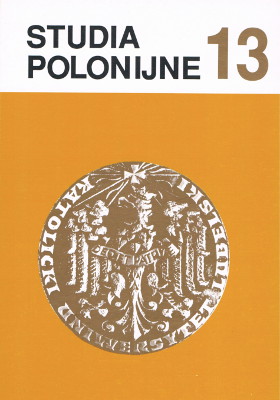The Problems of the Polish Children and Youth in Sweden in Connection with the Development of New Identity
Main Article Content
Abstract
In the first part of this paper the author draws our attention to the role of a mother tongue in the adaptation process which enables one to live in a foreign environment. Hampering the development of a mother tongue results in a serious risk of hampering a general, intellectual, emotional, and social development. A mother tongue, namely, is an intellectual-emotional agent in the creation of a child’s identity, and as such plays a very important role. It has been proved by research that putting a strong emphasis on the use of a new tongue, exclusively, has given a most unwelcomed result: the Swedish language was mastered very slowly, while at the same time the knowledge of the mother tongue started to disappear pretty quickly.
The development of a foreign child’s personality depends on the influence of Polish and Swedish culture. The parents’ influence is most essential in this respect. Usually, the source of conflicts is the difference between the Polish and Swedish family. The first is characterized by emotional proximity, parents’ authority, and the autonomy of the family in relation to other social institutions. The Swedish family is characterized by rationalism, partnership between a child and his family, and subordination of the family to other social institutions. The Polish parents very often feel uncertain and at a loss in their social role and treat Swedish schools or kindergartens with great distrust.
In the period of adolescence a great part of Polish children cut themselves of their „Polish” identity and choose „Swedish” identity, thus losing with their families and their own ethnic group. Such superficial Swedishness cannot become a basis for an adult personality. The children have to cope with a deeper source of problems when their parents are not consequent enough in using the Polish language in everyday life. They go away from their tradition, religion and its observances. Eventually, they bring up their children in such a way that they simply leave that which is Polish.
Polish emigrants in Sweden constitute one of the greatest foreign groups. It is regarded as a group which has great possibilities and possesses its own vivid cultural and religious consciousness.

